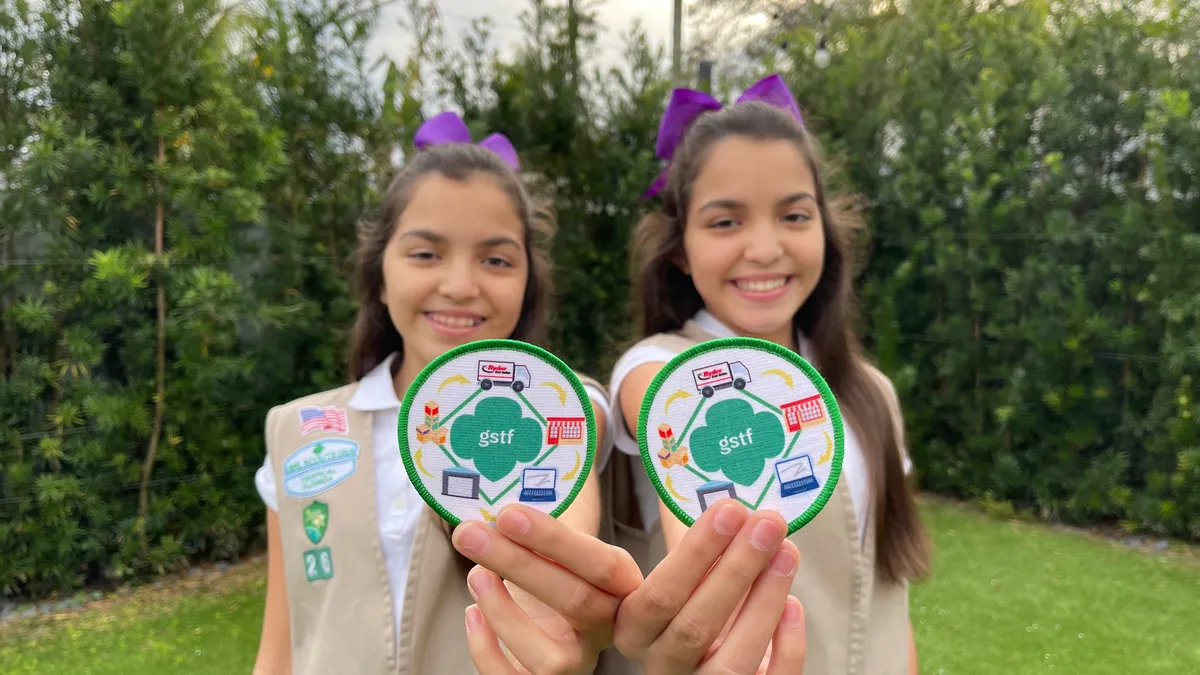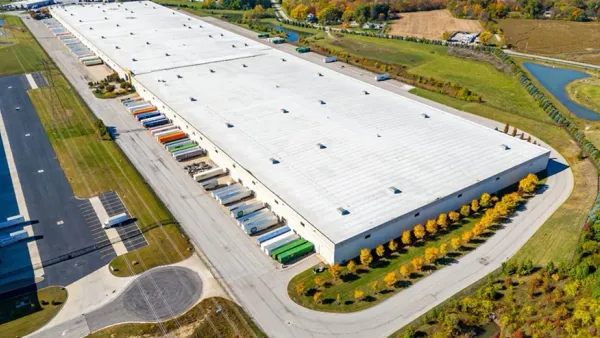Getting Girl Scout Cookies doesn’t happen by magic. It’s a major supply chain operation same as any nationally available product, and organizations are using the operation as a way to teach supply chain to girls.
An hour long program about supply chain, which offers a "patch" for participating, introduces girls to the field. It helps them identify where they might find a career, as the pandemic brings to light the importance of the supply chain.
Organizers also hope that introducing girls to the workings of the supply chain can help turn a field where 90% of senior management positions are held by men, and women make up 39% of the workforce, into a more diverse one. Not only is it the right thing to do, but Deloitte found that companies with a diverse workforce have a competitive edge.
"We tell girls all the time you can be anything you want to be, but you don’t know it until you see it," said Lori Ross, director of girl experience for the Girl Scouts of Tropical Florida.
Teaching the Girl Scout Cookie journey
The idea for the "Girl Scout Cookies and the Supply Chain" patch started with a Ryder employee, who suggested that the Ryder Charitable Foundation become involved with the Girl Scouts. That led Kitty Dumas, manager of the foundation, to do research. She found that the Girl Scouts didn’t have supply chain badges out of the 127 STEM badges offered.

Pairing a supply chain program with Girl Scouts seemed obvious, she said, even if most people don’t associate the two. The Girl Scout Cookie program, which started in 1917, accounts for 200 million boxes sold by more than one million Girl Scouts per year. The Girl Scouts of Tropical Florida sells and distributes more than 400,000 boxes of cookies annually.
Ross had been thinking along those lines. "For a long time I’ve had this idea in my head about creating something that would show what happens behind the scenes before the cookies hit the market," she said. Given that shortages in everything from toilet paper to treadmills has been a common pandemic theme, "the timing of bringing this program to the girls could not be better."
Due to COVID-19, the program was virtual, and hosted 50 students. They started by watching a video from Little Brownie Bakers called "Journey of a Girl Scout Cookie" and a video from Domino’s about its nationwide supply chain.
Role models for future talent
Girls virtually met women from the University of Tennessee’s Global Supply Chain Institute, including Jessica Thomas. She’s a current student and president of NeXxus, a school initiative that focuses on creating a more diverse student body. She will graduate this year into a job at PepsiCo. The Ryder Charitable Foundation also funds annual scholarships for NeXxus participants in supply chain fields, including 11 women in 2020.
Organizers specifically chose women who are students and professionals in the hopes of better connecting to the girls.
"If I was a little girl, I might be a little more excited to see these dynamic, fun, personable college women and look up to them rather than someone my age," Dumas said.
They talked about career paths, what they studied in school, and what they loved about the field. They also talked about the challenges supply chain managers face, especially related to logistics during the pandemic.
This supply chain program is considered at "patch" level, which recognizes participation in an event. Next, the patch will become a council owned badge, which is presented to Girl Scouts of the USA to be considered for national status.
Bringing girls into the supply chain fold
The Girl Scouts program is unique because it’s a standalone program focused on grades K to 12. Most other programs are for high school students, like the Rutgers Business School’s Supply Chain Education Partnership Program. The Association for Supply Chain Management's teen-level supply chain program is on hold, and the PEPFAR Dreams program is for ages 18 to 24.
It’s also directed at one gender because women are underrepresented in the field.
"We tell girls all the time you can be anything you want to be, but you don’t know it until you see it."

Lori Ross
Director of girl experience for the Girl Scouts of Tropical Florida
Maureen Hoersten, COO of LaSalle Network, a staffing, recruiting and culture firm, said she loves this Girl Scout initiative as part of larger diversity and inclusion efforts and because it introduces girls to supply chain early on. It’s a STEM career that’s often overlooked in education and recruiting efforts.
"Maybe it’s not as sexy as some of the other skill sets, but with it being the main backbone of most organizations and how they get and transfer their goods, it’s really just as important," she said.
This story was first published in our weekly newsletter, Supply Chain Dive: Operations. Sign up here.
Correction: A previous version misstated Maureen Hoersten's title.













